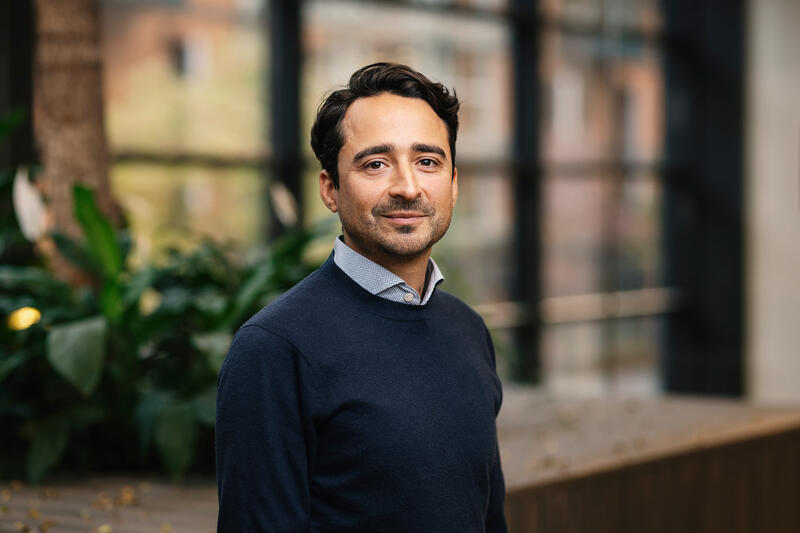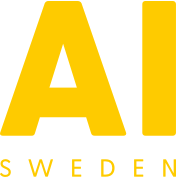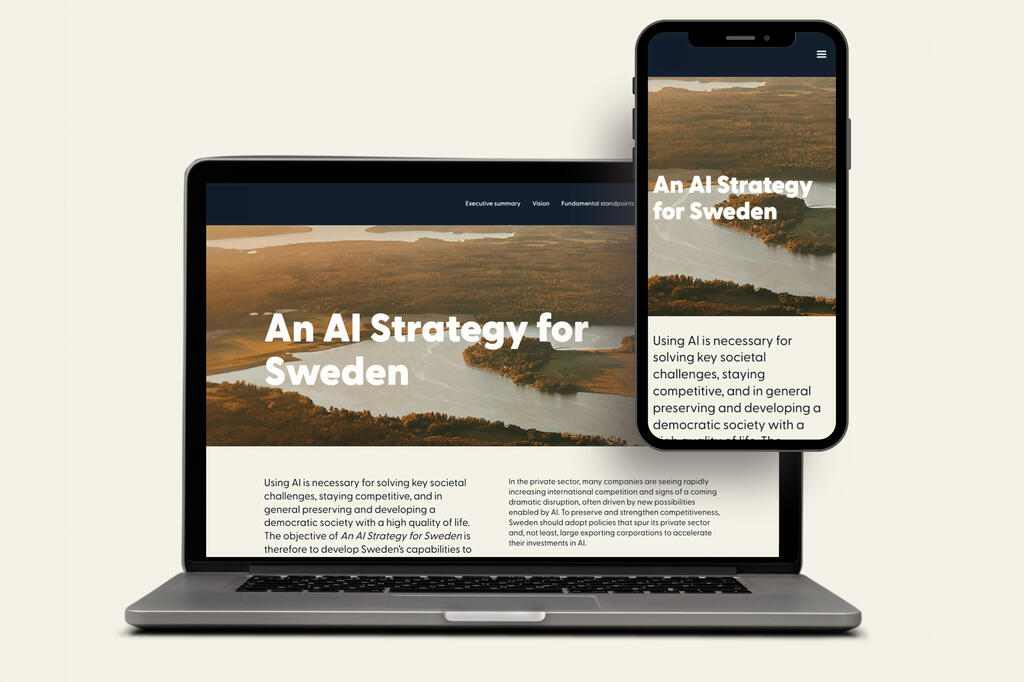AI Sweden launches an AI strategy for Sweden
Using AI is necessary for solving key societal challenges, staying competitive, and in general preserving and developing a democratic society with a high quality of life. The objective of An AI Strategy for Sweden is therefore to develop Sweden’s capabilities to strongly benefit from the potential of AI.
An AI Strategy for Sweden has been written to guide politicians, business leaders, decision-makers, civil servants, or changemakers with ambition and responsibility to lead and develop Sweden, the Swedish ecosystem, or individual organizations and companies towards a positive future through one of the most transformative times in history.
What is an AI strategy for Sweden?
The strategy includes a vision for Sweden, six fundamental standpoints and perspectives constituting the analysis, as well as six key principles for successful and large-scale use of AI. This aims to address societal and business challenges, within individual companies and organizations, as well as on a regional and national level. Proposals for a number of indicators to measure overall progress are also presented. Throughout the strategy, there is a strong call for Swedish decision-makers to concretize, implement, and set goals for the strategy based on their respective organization's perspective.
"Based on who we are, our values, and our strengths, Sweden has a tremendous opportunity to solve key societal, democratic, and business challenges with the use of AI. To get there we should focus on generating value, leading with boldness, scaling collaboration, and investing significantly across sectors." says Martin Svensson, Managing Director at AI Sweden.
The heart of the strategy & Key principles
An AI Strategy for Sweden encourages Sweden to recognize the necessity of AI and apply a fully adoption-centric strategy that ensures significant and broad value across sectors, contributes to a prosperous democratic society, strengthens our national security, and enables Sweden to have a positive global impact while navigating potential risks. The heart of such a strategy should be bold leadership focusing on value, cross-sector collaboration, and collective investments, fueled by international relations and strong frontrunners in both the private and public sectors boldly leading the way.
Countries that early on have invested heavily in AI research and talent through research-focused strategies (e.g. Canada) now face a crucial choice to invest beyond research and experimentation to enable adoption or lag behind. While others have to change their strategies, Sweden on the other hand has an opportunity to acknowledge that the benefits from AI come when the technology is put to use in companies and organizations, and implement an adoption-focused strategy from the beginning.
As the next step, AI Sweden will now assist a number of organizations in concretizing and setting goals for the strategy based on the organizations' own perspectives, thus catalyzing relevant actions for Sweden's development.
Background
An AI strategy for Sweden has been developed by AI Sweden and on our own initiative. The strategy has been written to guide politicians, business leaders, decision-makers, civil servants, or change leaders who have the ambition and responsibility to lead and develop Sweden, the Swedish AI ecosystem, or individual organizations and companies through one of the most transformative times in history.
Two reference groups have contributed significantly to the work. The participants have been involved in their individual capacity:
International reference group:
- Elissa Strome, Executive Director, Pan-Canadian AI Strategy, CIFAR
- José-Marie Griffiths, President, Dakota State University and commissioner, National Security Commission on Artificial Intelligence
- Laurence Liew, Director, AI Innovation at AI Singapore
Swedish reference group:
- Birgitta Bergvall-Kåreborn, Vice-Chancellor (Rector), Luleå University of Technology
- Christian Hedelin, Chief Strategy Officer, SAAB
- Darja Isaksson, Director General of Vinnova, the Swedish Innovation Agency
- Markus Lingman, Chief Strategy Officer, board of Halland hospital group
- Mikael Sjöberg, Secretary General, the Swedish Confederation of Professional Employees
- Peder Blomgren, VP and Head of Data Office, R&D at AstraZeneca and Chairperson in AI Sweden
For more information, please contact



